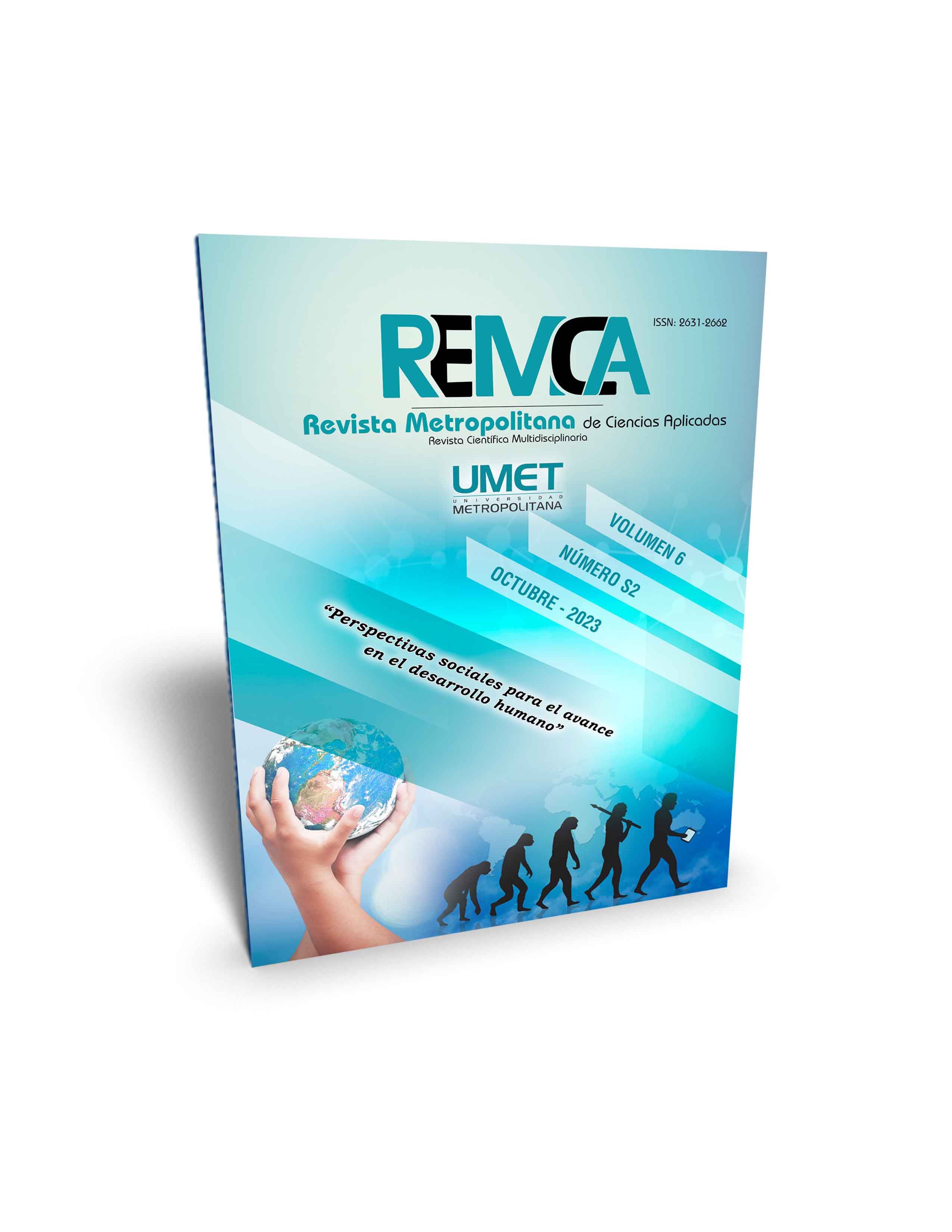Self-concept and academic performance of the students of the Faculty of Health Sciences
DOI:
https://doi.org/10.62452/bnm4e232Keywords:
Self-concept, academic performance, studentsAbstract
The main purpose of this research was to assess the self-concept and the results of the academic performance of the students of one of the six educational programs of the Faculty. The two categories were compared in order to know their characteristics and to check if there were relationships between the different dimensions of self-concept and the academic results achieved by the students of the Bachelor's Degree in Physical Education and Sports, which was the first educational program to be studied. Theoretical level methods such as the historical-logical were used to determine the trajectories of the students within the educational program and the Faculty. Scientific methods such as analysis and synthesis were applied, which were used to evaluate the different categories or dimensions of self-concept and to establish their similarities and differences. The inductive-deductive method was used to conform several parts of the final research report and at the empirical level, the document analysis method was used to consult texts and documents. The survey technique was used to obtain the research data. We worked with the SPSS system for the statistics process. The results of the work favor the design and development of didactic strategies that link the results of the self-concept of each group with the ability to study in order to improve the students' grades in the subjects they will have to take in subsequent semesters. The contribution of research is strong because it allows for the improvement of the educational work carried out by teachers.
Downloads
References
Ariza, C. P., Rueda Toncel, L. Ángel, & Sardoth Blanchar, J. (2018). El rendimiento académico: una problemática compleja. Revista Boletín Redipe, 7(7), 137–141.
Bernal, Y., & Rodríguez, C. (2017). Factores que Inciden en el Rendimiento Escolar de los Estudiantes de la Educación Básica Secundaria. (Tesis de maestría). Universidad Cooperativa de Colombia.
Caballero Montoya, R. (2021). La relación entre el Autoconcepto académico y el Rendimiento Escolar en adolescentes con y sin TDAH. (Trabajo de investigación). Universitat Oberta de Catalunya.
Chávez-Becerra, M., Flores-Tapia, M., Castillo-Nava, P., & Méndez-Lozano, S. (2020). El autoconcepto en universitarios y su relación con rendimiento escolar. Revista de Educación y Desarrollo, 53.
Closas, A., Franchini, N., Kuc, L., Dusicka, M., & Hisgen, C. (2018). Modelo logístico explicativo de las relaciones entre autoconcepto y rendimiento académico. Revista de la Facultad de Ciencias Económicas, 20, 187-208.
Cordero, O. (2015). El autoconcepto en estudiantes de educación general básica con bajo rendimiento académico. (Tesis de pregrado). Universidad de Cuenca.
Duarte, L. L., & Cardozo, L. A. (2021). Percepción del autoconcepto físico en estudiantes universitarios en tiempos de confinamiento por COVID-19. Cuadernos de Psicología del Deporte, 21(3), 48-61.
Fuentes, M., García, J., & Gracia, E. (2011). Autoconcepto y ajuste psicosocial en la adolescencia. Psicothema, 23(1), 7-12.
Garaigordobil, M. (2011). LAEA. Listado de adjetivos para la evaluación. TEA Ediciones.
García, F., &. Musitu, G. (2014). Manual AF-5 Autoconcepto Forma 5. TEA Ediciones.
Hernández, R., Fernández, C., & Baptista, P. (2014). Metodología de la Investigación. McGraw-Hill / Interamericana Editores, S.A. de C.V.
Iñiguez, F. (2016). Influencia de la familia en el autoconcepto y la empatía de los adolescentes.
Navajas-Seco, R. (2016). La mejora del autoconcepto en estudiantes universitarios a través de un programa expresivo-corporal. (Tesis Doctoral). Universidad Complutense de Madrid.
Quintero, Y. (2020) La importancia de la educación de la inteligencia emocional en las aulas de educación infantil. (Tesis de licenciatura). Universidad de La Laguna.
Veliz-Burgos, A., & Apodaca-Urquijo, P. (2012). Niveles de autoconcepto, autoeficacia académica y bienestar psicológico en estudiantes universitarios de la ciudad de Temuco, Chile. Salud & Sociedad, 3(2).
Downloads
Published
Issue
Section
License
Copyright (c) 2023 Oscar Enrique Mato-Medina, José Jesús Matos-Ceballos, Juan Prieto-Noa, Fabrizio Rafael Hernández-Acal, Luis Fernando Yocupicio-Cámara (Autor/a)

This work is licensed under a Creative Commons Attribution-NonCommercial-ShareAlike 4.0 International License.
Authors who publish in Revista Metropolitana de Ciencias Aplicadas (REMCA), agree to the following terms:
1. Copyright
Authors retain unrestricted copyright to their work. Authors grant the journal the right of first publication. To this end, they assign the journal non-exclusive exploitation rights (reproduction, distribution, public communication, and transformation). Authors may enter into additional agreements for the non-exclusive distribution of the version of the work published in the journal, provided that acknowledgment of its initial publication in this journal is given.
© The authors.
2. License
The articles are published in the journal under the Creative Commons Attribution-NonCommercial-ShareAlike 4.0 International License (CC BY-NC-SA 4.0). The terms can be found at: https://creativecommons.org/licenses/by-nc-sa/4.0/deed.en
This license allows:
- Sharing: Copying and redistributing the material in any medium or format.
- Adapting: Remixing, transforming, and building upon the material.
Under the following terms:
- Attribution: You must give appropriate credit, provide a link to the license, and indicate if any changes were made. You may do this in any reasonable manner, but not in any way that suggests the licensor endorses or sponsors your use.
- NonCommercial: You may not use the material for commercial purposes.
- ShareAlike: If you remix, transform, or build upon the material, you must distribute your creation under the same license as the original work.
There are no additional restrictions. You may not apply legal terms or technological measures that legally restrict others from doing anything the license permits.




